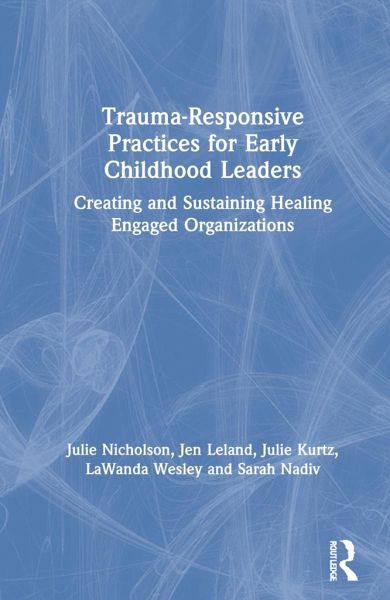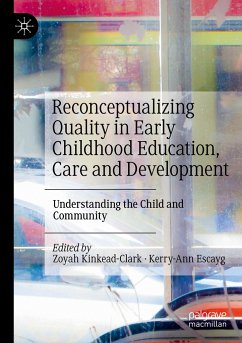
Trauma-Responsive Practices for Early Childhood Leaders
Creating and Sustaining Healing Engaged Organizations
Versandkostenfrei!
Versandfertig in 1-2 Wochen
168,99 €
inkl. MwSt.
Weitere Ausgaben:

PAYBACK Punkte
84 °P sammeln!
Specifically designed for administrators and leaders working in early childhood education, this practical guide offers comprehensive resources for creating trauma-responsive organizations and systems. Throughout this book, you'll find: Exercises and tools for identifying the strengths and areas in need of change within your program, school or agency. Reflection questions and sample conversations. Rich vignettes from programs already striving to create healthier, trauma-responsive environments. The guidance in this book is explained with simple, easy-to-implement strategies you can apply immedi...
Specifically designed for administrators and leaders working in early childhood education, this practical guide offers comprehensive resources for creating trauma-responsive organizations and systems. Throughout this book, you'll find: Exercises and tools for identifying the strengths and areas in need of change within your program, school or agency. Reflection questions and sample conversations. Rich vignettes from programs already striving to create healthier, trauma-responsive environments. The guidance in this book is explained with simple, easy-to-implement strategies you can apply immediately to your own practice and is accompanied by brainstorming questions to help educational leaders both new to and experienced with trauma-informed practices succeed.













